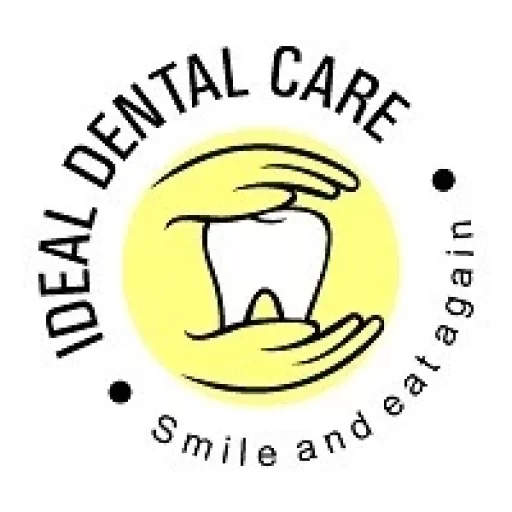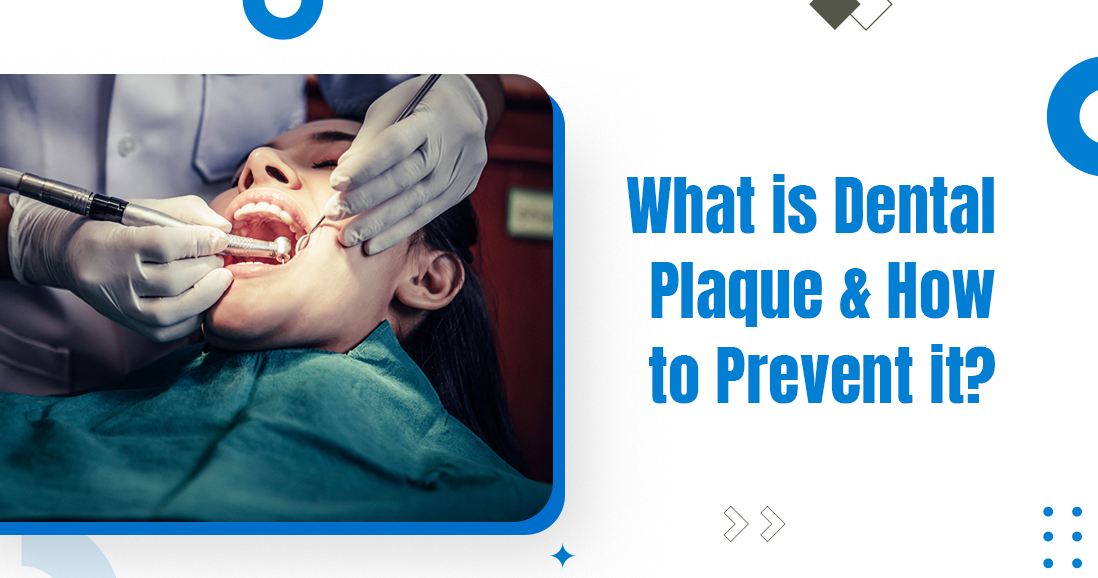What is Dental Plaque & How to Prevent it?
Do you know oral hygiene is not just about brushing or rinsing your teeth after lunch or dinner? It is also about many other factors to keep in mind. Just after 20 minutes of your eating, you may be attacked by various bacteria, sugar acids, and saliva-containing food particles that can cause intense damage to your teeth, resulting in the rise of plaque in your teeth. Plaque may induce millions of bacteria in your mouth that, if left unchecked, may cause tooth decay and gum disease. For this, you need to take an extra step to freshen your breath with plaque-fighting oral care products. To understand the treatment and prevention of plaque, let us first answer the question of what dental plaque is.
Dental Plaque
Dental Plaque is also known as a biofilm. It is a colorless layer of bacteria built on your teeth. When we consume eatables containing a good amount of carbohydrates, the bacteria in our mouth become more active on those carbohydrates and produce acids. According to the American Dental Association (ADA) (https://www.ada.org/ ) , these sugary acids generally destroy and weaken your teeth’ enamel. This may result in an increase in the risk of developing cavities.
Moreover, the dental plaque can eventually become strong and into tartar, making your gums swollen and bleed easily. This is the first and foremost sign of gum disease. However, you may be glad to know that the removal of dental plaque is not rigid and can be done quickly with simple steps, preventive measures, and expert advice from your dentist.
Dental Plaque Formation
Plaque is formed as a result of enormous combinations of foods, dangerous acid and moisture levels in the patient’s mouth, and internal and exterior bacteria from many factors. This is generally accumulated at the back of your mouth in the molars, any ridges caused by dental work, and regions where your brush cannot easily reach. It is not easily visible with bare eyes unless it has started destruction in your mouth with some amount of tooth decay. However, regular dental care practices, good dental products, and some more regular measures can surely help you to avoid dental plaque formation.
Remember that dental plaque is the primary step toward more difficult dental issues. Once it becomes a tartar, the plaque is challenging to remove. So, try to get rid of it in the early stage when it is soft enough to brush and floss out to reduce the chances of immense problems.
Prevention of Dental Plaque
It is good news that you can easily remove and reduce the intensity of the damage caused by the plaque in the early stage. All you need to Get rid of that sticky biofilm is thoroughly clean all the areas of your teeth, between the gaps of your teeth, and under the gum of your mouth. It will allow you to remove the food debris that feeds bacteria. It is also advised to visit your dentist if you feel that your plaque has hardened into tartar, also known as calculus, as regular brush and flossing will not help you in that case. Following are some of the preventive measures that you can take to remove or stop the place from attacking your mouth:
- Regularly brush your teeth at least two times a day and rinse your mouth every time you eat anything. You can use a soft-bristled toothbrush and fluoride toothpaste to help remove plaque from tooth surfaces, the gums and protect your teeth from intense oral problems, and tooth decay.
- Floss your teeth regularly. Make it a routine to do regular flossing, especially before bedtime, to make sure that there are no food particles or leftovers in your mouth that can cause damage. This practice will help your teeth as it will reduce the chances of food particles to upgrade the growth of the bacteria in your mouth. Also, flossing is helpful as it helps to remove food particles from places where brushes cannot reach easily, so this is a crucial activity to be followed daily.
- It is advised to rinse your mouth thoroughly with a good and doctor’s recommended mouthwash as it also helps your bacteria to penetrate out of your oral region. The swishing action of the mouthwash will also flow deep into tooth crevices and shred away all the residual food. An anti-bacterial mouthwash is also of great help to remove and kill the harmful bacteria and sediments on your teeth, leaving you with a clean mouth and refreshing breath.
- Another essential factor to keep in mind is a good and balanced diet. It is not only good for your overall health but is perfect for the health of your teeth. Opt for a planned and balanced diet and try to make a fixed time to consume your between-meal snacks. It is advised because most of the snacks you consume in between meals have extra sugar and starch that brings in more bacteria in your mouth. So limiting your snacks and switching to nutritious foods such as plain yogurt, dals, fruit, or raw vegetables is a good option for you.
It is always better to visit a dentist for professional dental cleaning and recommendations to effectively take care of your overall mouth. You should at least see a dental clinic in six months and a dental exam every year so that you can adequately understand the actual position of your teeth if any plaque formation is there or not, and any signs of tooth decay, cavities, and other dental issues. Also, a planned cleaning procedure will help you to remove all the plaque and tartar from the oral region and prevent serious dental problems.



